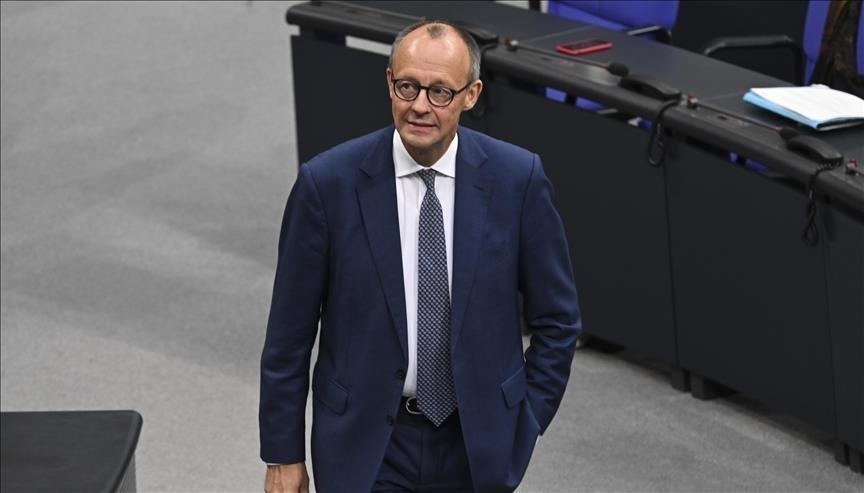BERLIN
Leading German chancellor candidate Friedrich Merz strongly criticized US Vice President JD Vance on Sunday for expressing support for the far-right Alternative for Germany (AfD) party ahead of Feb. 23 parliamentary elections.
During a heated TV debate between chancellor candidates, opposition leader Friedrich Merz reiterated that his Christian Democrats (CDU/CSU) will not cooperate or enter into coalition talks with the AfD after the elections.
“I will not let the US vice president tell me who I have to talk to here in Germany. I accepted the results of the US elections held on Nov. 8 last year, and I expect the American government to do the same in return,” he said.
Vance sparked controversy Friday when in a speech at the Munich Security Conference, he criticized European governments and political parties for taking a stance against right-wing populist parties, excluding them from political processes.
Merz criticized the remarks, saying during the TV program that he had expressed his disapproval directly to Vance during their Munich meeting.
“That is out of the question, and I refuse to accept such interference in the German federal election, and also in the formation of the government after the elections. The Americans have no role to play here,” he said.
Following his speech, Vance met with AfD co-chair Alice Weidel in Munich, indicating support just a week before Germany’s parliamentary elections on Feb. 23, in a breach of diplomatic norms.
The conference’s organizers did not invite Weidel due to her party’s anti-democratic positions.
Chancellor Olaf Scholz also criticized Vance’s speech, defending Germany’s longstanding political principle known as the “firewall” against the far right—the refusal to cooperate in any way with right-wing extremists.
“I think it must be quite clear that what was said there is completely unacceptable,” the Social Democrat said, referring to Vance’s speech supporting the AfD.
“We have learned lessons from the Nazi period that there can be no cooperation with the extreme right. That is why we have laws that make this possible, such as banning National Socialist symbols in Germany, unlike in the US. I believe that it must remain that way,” he said.
The Green Party’s chancellor candidate, Robert Habeck, delivered the strongest criticism, accusing the Trump administration of attacking Western values that America had originally brought to Europe.
“The Trump administration is launching a frontal attack on Western values,” he said. “This isn’t just interference in the election campaigning—it’s about putting into question the rule of law, liberal democracies and the rules-based order that America itself brought to Europe.”
Recent polls show Merz’s center-right CDU/CSU alliance leading with 30% though unable to secure an outright majority in parliament. Analysts expect him to seek a coalition with either the center-left Social Democratic Party (SPD) or the Greens to form a government.
Chancellor Scholz’s SPD currently stands at 16%, with the Greens at 14%. The AfD is positioned to become parliament’s second-largest party with 20%.
However, the AfD appears unlikely to be part of any coalition government, as all other parties have rejected working with it.

